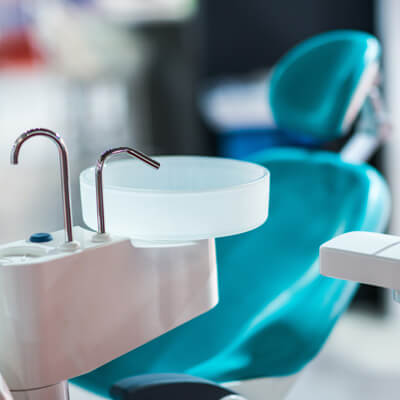Tooth Extraction in Arlington
 The typical reason for extracting teeth is that they are not where they’re supposed to be. There is often insufficient room in the mouth for the teeth to come all the way through, resulting in a tooth that may be half in and half out of the gums.
The typical reason for extracting teeth is that they are not where they’re supposed to be. There is often insufficient room in the mouth for the teeth to come all the way through, resulting in a tooth that may be half in and half out of the gums.
It’s quite common for patients to have wisdom teeth removed, and Joseph Reed, DMD, MAGD, has three decades of experience providing this service in a painless, anxiety-free manner.
If you need teeth removed, we’re here to help and make the process as stress-free and painless as possible. We look forward to helping you restore your smile!
Different Reasons for a Tooth Removal
There are several reasons for an extraction at Arlington Dental:
Surgical extraction—a procedure designed to remove a tooth while preserving as much of the surrounding bone as possible. By separating the tooth’s root from the surrounding bone, we ensure we don’t lose any socket while removing the tooth, making it easier to place an implant later if needed.
Wisdom teeth removal—one of the most common extractions we perform. Impacted or misaligned wisdom teeth are carefully extracted to prevent damage to the jaw and nearby teeth, ensuring optimal healing for any future dental interventions.
All-on-Four implant technique—this advanced form of dental restoration involves placing four dental implants in the jaw and then connecting them with a dental bridge. This configuration leverages the natural support of the jawbone, providing exceptional stability and allowing for immediate loading of the dental prosthesis.
Extraction for non-fixable teeth— may be necessary if a tooth is severely damaged and cannot be repaired. In these cases, we prioritize preserving as much bone as possible to facilitate future implant placement if desired.
Getting Ready for Your Procedure
To ensure a smooth procedure and recovery, patients are asked to follow all pre-operative instructions provided by our team, which may include fasting from food and drink before the appointment, taking any prescribed antibiotics or medications as directed, arranging for someone to drive them home, especially if sedation will be used, and stocking up on soft foods for the recovery period.
You should also plan to rest for the remainder of the day following your extraction.
What to Expect During and After the Procedure
You’ll be numb throughout the process, and if you wish to be sedated, we offer both oral and IV sedation options. Dr. Reed is certified to provide these sedation methods, ensuring your comfort throughout the procedure.
Using the appropriate tools, Dr. Reed will remove the tooth. A special collagen sponge containing antibiotics and a clotting agent will be placed in the socket and then stitched closed. This ensures that the likelihood of infection is incredibly small—in 30 years, Dr. Reed has never had a wisdom tooth extraction become infected.
After the procedure, you’ll keep the gauze on the socket for four hours, then remove it. It’s important to eat and stay hydrated while your body heals.
Managing Your Recovery and Aftercare
Recovery time varies but typically takes a few days to a couple of weeks. Most patients find that within five to six days, there’s very little tenderness, and the extraction site is hardly noticeable. However, due to the more extensive nature of the procedure, recovery may take longer for wisdom teeth extractions.
Following post-operative care instructions is crucial to promote faster healing and minimize complications. The most common complication is a dry socket, which occurs when the blood clot in the extraction site is dislodged.
To prevent this:
- Avoid sucking on the wound or excessive spitting
- Don’t use straws for the first few days
- Avoid smoking and alcohol
- Stick to soft foods and avoid chewing near the extraction site
Frequently Asked Questions
Why might I need a tooth extraction?
Tooth extractions are commonly performed to treat severe tooth decay, advanced gum disease, impacted wisdom teeth, overcrowding, or to prepare for orthodontic care.
With effective local anesthesia, you shouldn’t experience any sharp pain during the procedure—only mild sensations of pressure and vibration. If you do feel any discomfort, we can promptly address it to ensure your comfort throughout the process.
How long does a tooth extraction take?
The duration varies based on factors like the tooth’s location and complexity. Simple extractions may take a few minutes, while more complex cases may require a more prolonged procedure.
Can I drive myself home after the extraction?
If you’ve been sedated, either through oral or IV sedation, you will need someone to drive you home. This is not only for your safety but is also a legal requirement.
What are the possible complications of a tooth extraction?
While complications are rare, they include dry socket, infection, or damage to surrounding teeth or tissues. Following post-operative care instructions helps minimize these risks.
How many teeth can be extracted at once?
The number of teeth that can be extracted in one session depends on various factors, including your overall health, the complexity of the extractions, and your preferences. Sometimes, all four wisdom teeth can be removed in one appointment. For other situations, we may recommend spacing out the extractions. We’ll discuss the best approach for your specific case during your consultation.
Get the Care You Need Today
Wondering if your wisdom teeth or other dental extractions are needed? Contact Arlington Dental today to schedule an appointment.
